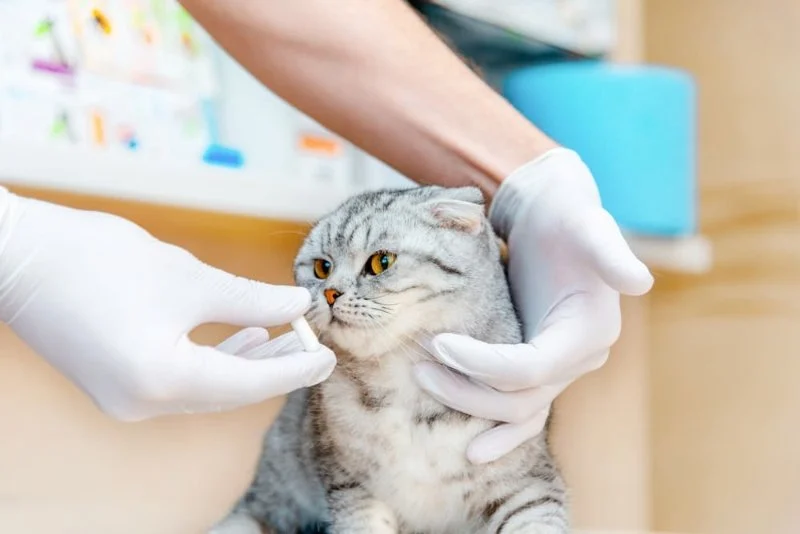
- What is Hyperthyroidism in Cats?
- Symptoms of Hyperthyroidism in Cats
- Treatment Options for Hyperthyroidism in Cats
- Diet and Nutrition for Cats with Hyperthyroidism
- Real-Life Case: Managing a Cat’s Hyperthyroidism
- Recommendations for Cat Owners
What is Hyperthyroidism in Cats?
Hyperthyroidism in cats is a common endocrine disorder in older felines, where the thyroid glands become overactive and produce excess thyroid hormones. These hormones play a key role in regulating the metabolism, so when they are in excess, it can lead to rapid changes in the body, resulting in various health issues.
This condition is primarily caused by a benign tumor in the thyroid gland, which leads to an overproduction of thyroid hormones. While it’s more common in older cats, hyperthyroidism can occur in younger felines as well. Without treatment, hyperthyroidism can lead to serious complications like heart disease, kidney issues, and high blood pressure.
Symptoms of Hyperthyroidism in Cats
The symptoms of hyperthyroidism in cats are often noticeable and can impact a cat's overall well-being. Common signs include:
- Weight Loss – Despite a good appetite, cats with hyperthyroidism tend to lose weight as their metabolism speeds up.
- Increased Appetite – Cats may show a sudden increase in hunger as their body works overtime to compensate for increased metabolism.
- Excessive Thirst and Urination – Hyperthyroidism often leads to dehydration, causing cats to drink more water and urinate more frequently.
- Hyperactivity – Many cats with this condition become unusually restless, agitated, or hyperactive.
- Vomiting or Diarrhea – Gastrointestinal disturbances are common in cats with hyperthyroidism.
If you notice any of these symptoms in your cat, it’s important to seek veterinary care immediately. Early diagnosis and treatment can help manage the condition and prevent further health complications.
Treatment Options for Hyperthyroidism in Cats
There are several effective treatment options available for managing hyperthyroidism in cats. The best choice depends on your cat’s overall health, the severity of the condition, and the specific needs of your feline. The main treatment options include:
- Medication – Anti-thyroid medications, such as methimazole, are often prescribed to control thyroid hormone production. These drugs are typically given orally, and regular monitoring by a veterinarian is required to ensure proper dosage and effectiveness.
- Surgery – If the thyroid tumor is benign and localized, surgical removal of the thyroid gland may be a permanent solution. This option is typically reserved for cats that are healthy enough for anesthesia and surgery.
- Radioactive Iodine Treatment – This is considered the most effective and definitive treatment for hyperthyroidism. A radioactive iodine injection destroys the overactive thyroid tissue without affecting the surrounding healthy tissue. This option typically requires a stay in a specialized veterinary facility for monitoring.
- Dietary Therapy – Special prescription diets that restrict iodine intake, such as Hill’s y/d, can also help manage the condition. Iodine is essential for thyroid hormone production, so limiting iodine can help reduce thyroid hormone levels in the body.
Each of these treatments has its pros and cons, and your veterinarian will be able to recommend the best option based on your cat’s individual condition and lifestyle.
Diet and Nutrition for Cats with Hyperthyroidism
Diet plays a crucial role in managing hyperthyroidism in cats, especially when used alongside medical or surgical treatments. A special diet designed to control iodine intake can be an effective tool in managing this condition.
Prescription Diets – As mentioned earlier, prescription diets like Hill’s Prescription Diet y/d are specifically formulated to manage hyperthyroidism. These diets are low in iodine, which reduces the production of thyroid hormones. This is especially useful for cats who are not candidates for surgery or radioactive iodine treatment.
Balanced Diet – Cats with hyperthyroidism often experience weight loss despite increased appetite. A high-quality, well-balanced diet that meets your cat’s increased nutritional needs is important. Ensuring your cat gets the right nutrients, including protein and healthy fats, helps maintain muscle mass and overall health.
Hydration – Cats with hyperthyroidism often become dehydrated due to increased thirst and urination. Encouraging your cat to drink plenty of water and offering wet food can help keep them hydrated, which is essential for supporting kidney function and preventing further complications.
It’s important to work closely with your veterinarian to ensure that your cat's diet is appropriately tailored to their needs and supports their treatment plan.
Real-Life Case: Managing a Cat’s Hyperthyroidism
Take the case of Max, a 13-year-old domestic shorthair, whose owner noticed significant weight loss and increased thirst. After a trip to the vet, Max was diagnosed with hyperthyroidism. His owner opted for radioactive iodine treatment, which ultimately cured his condition. Along with the treatment, Max’s owner also switched to a prescription diet to support his recovery. Today, Max is back to his playful self, with his weight stable and energy levels normal.
Max’s story is a testament to the effectiveness of modern treatments for hyperthyroidism in cats. With early diagnosis and proper treatment, cats like Max can lead long, healthy lives despite their thyroid condition.
Recommendations for Cat Owners
If your cat is diagnosed with hyperthyroidism, there are several important steps to take to ensure they receive the best care:
- Monitor Symptoms – Pay attention to any changes in your cat’s behavior or health, such as changes in appetite, weight, or activity levels.
- Follow Your Vet’s Advice – Your vet will provide guidance on medication, diet, and follow-up care to ensure the best outcome for your cat.
- Regular Check-Ups – Regular veterinary visits are important to monitor your cat’s condition, adjust treatments as needed, and ensure they are recovering well.
For more information on products that can support your cat’s thyroid health, be sure to visit Omnia Pet, where you’ll find a range of pet care products tailored to your feline’s needs.




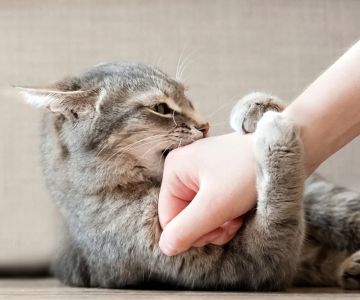
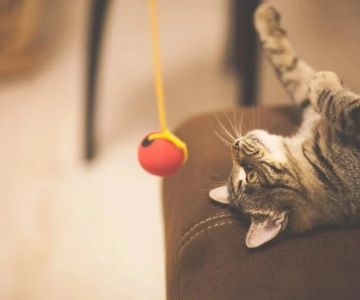
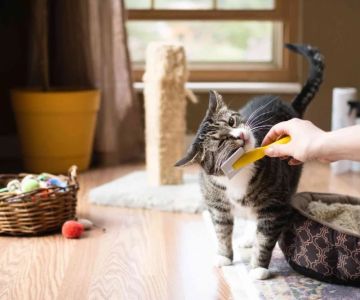

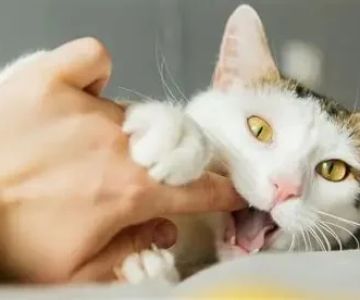
 Hollywood Feed4.0 (184 reviews)
Hollywood Feed4.0 (184 reviews) Brew Biscuits5.0 (2 reviews)
Brew Biscuits5.0 (2 reviews) All Friends Animal Hospital4.0 (446 reviews)
All Friends Animal Hospital4.0 (446 reviews) Kittylandkittens LLC0.0 (0 reviews)
Kittylandkittens LLC0.0 (0 reviews) Village Animal Clinic4.0 (212 reviews)
Village Animal Clinic4.0 (212 reviews) Rift Lake Aquatics4.0 (165 reviews)
Rift Lake Aquatics4.0 (165 reviews) Understanding Pet Insurance: What Does It Actually Cover?
Understanding Pet Insurance: What Does It Actually Cover?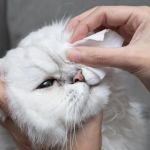 How to Keep Your Kitten's Eyes Clean and Free of Discharge
How to Keep Your Kitten's Eyes Clean and Free of Discharge The Truth About Heartworm Disease: Prevention is Cheaper Than Cure
The Truth About Heartworm Disease: Prevention is Cheaper Than Cure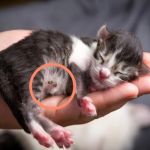 Why Is My Kitten's Belly Button Showing? | Omnia Pet
Why Is My Kitten's Belly Button Showing? | Omnia Pet Why Does My Cat Bite Me Gently? Love Bites Explained
Why Does My Cat Bite Me Gently? Love Bites Explained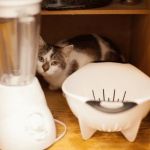 How to Stop Your Kitten from Getting into Cabinets
How to Stop Your Kitten from Getting into Cabinets